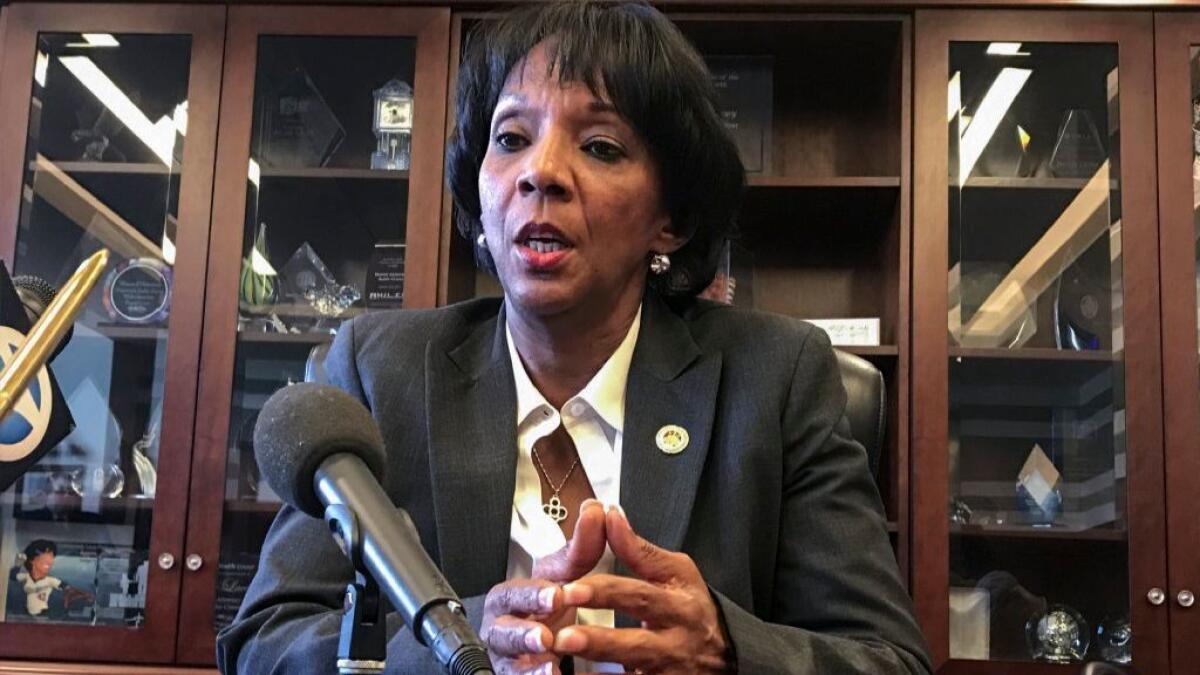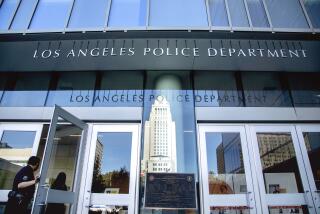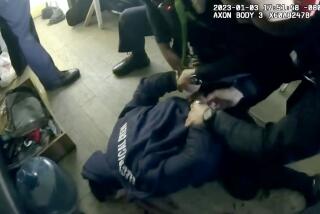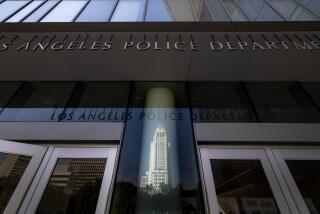Editorial: How L.A. County’s district attorney should be responding to police shootings

If a valid measure of a prosecutor’s performance is the number of police officers she puts on trial for fatal shootings, Los Angeles County Dist. Atty. Jackie Lacey’s decision Thursday would properly be seen as egregious.
Lacey opted not to bring charges against ex-LAPD Officer Clifford Proctor, who shot and killed Brendon Glenn in Venice on May 5, 2015. Proctor said he thought Glenn, unarmed and homeless, was reaching for another officer’s gun as they struggled on the ground — but the other officer said at the time he had no idea why Proctor pulled the trigger. Video of the incident seemed to condemn Proctor.
The civilian Police Commission found that the shooting violated department policy. The city paid out $4 million to settle a lawsuit brought by the victim’s family. Even Police Chief Charlie Beck called for his own officer to be criminally charged.
The LAPD has led the nation several times in the number of fatal police shootings, many of unarmed victims, but no criminal charges have been filed against an on-duty Los Angeles officer for excessive force since 2000.
If ever there was a shooting ripe for criminal charges against the officer, surely this was the one. But as in every other instance in which Lacey reviewed a fatal on-duty police shooting, she declined.
Doesn’t that demonstrate conclusively that Lacey is so close to police, on whom she relies for her prosecutions, that she can’t be entrusted to prosecute officers?
No criminal charges have been filed against an on-duty Los Angeles officer for excessive force since 2000.
It’s a little more complicated than that. It’s exceedingly difficult to make criminal charges stick against an officer acting in the line of duty. Recall that in the midst of a nationwide outcry over police uses of force, Baltimore State’s Attorney Marilyn J. Mosby was widely applauded for bringing charges against six police officers in the death of Freddie Gray in 2015. Let the jury decide, it was argued. In three cases the jury did — by acquitting the officers. Charges were then dropped in the other three cases. Five of the officers have now sued her for malicious prosecution.
Lacey argued that it would have been unethical for her to bring criminal charges against Proctor if she did not believe that she could prove the case to a jury beyond a reasonable doubt.
Indeed, Lacey would be rightly criticized if she filed criminal cases against civilians knowing she could not win convictions. Bringing cases to harass defendants, or to make a political point, would be reprehensible. If that’s true when the defendant is a civilian, it ought to be equally true when he is a police officer.
Yet the decision in Proctor’s case leaves the nagging feeling that justice is eluding us. The law grants police officers enormous — perhaps excessive — leeway in deciding whether they are under threat and may respond with deadly force. And even amid a public backlash against police uses of force, jurors are more likely to sympathize with a police officer in a high-profile case than an unknown defendant in a run-of-the-mill shooting. The deck is already stacked in favor of the police officer and against other accused felons.
We call on prosecutors to meticulously follow the law and exercise discretion in the interests of justice — not in the interest of winning public acclaim. Lacey appears to have been focused on justice, at least as she sees it. But district attorneys are also elected officials, and we call on them to lead. That means being vocal about perceived shortcomings in the entire justice system, not just in the cases brought before them. We have heard too little from Lacey on the subject of police shootings, and what ought to be done to hold officers accountable, even in the absence of something so blunt — and difficult to achieve, no matter how publicly satisfying it might be — as criminal prosecution.
Meanwhile, it may make sense for someone other than district attorneys to investigate and prosecute criminal cases against police officers, even if Lacey’s decision in this case was the right one. The justice system depends on public trust. The perception that district attorneys are too close to police to properly proceed against officers may be just as dangerous whether or not it is true.
Follow the Opinion section on Twitter @latimesopinionand Facebook
More to Read
A cure for the common opinion
Get thought-provoking perspectives with our weekly newsletter.
You may occasionally receive promotional content from the Los Angeles Times.






